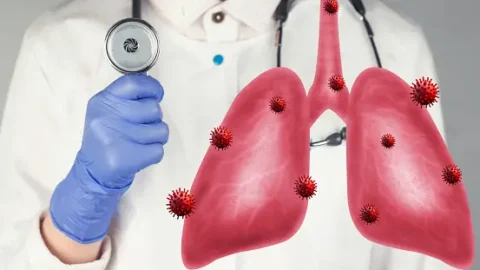Photo by freestocks on Unsplash
Table of Contents
- Understanding Chlamydia and Its Prevalence
- Why Prompt Treatment Matters
- Doxycycline 100mg: A First-Line Solution
- How Doxycycline Works to Treat Chlamydia
- Dosage and Usage Guidelines for Optimal Results
- Navigating Potential Side Effects of Doxycycline
- Ensuring Success: Avoiding Reinfection and Resistance
- Partner Communication: Breaking the Chain of Transmission
- Long-Term Prevention: Building a Healthy Approach
- A Journey Toward Confidence and Wellness
Understanding Chlamydia and Its Prevalence
Chlamydia is among the most common sexually transmitted infections (STIs) in the UK, affecting individuals across all age groups, but especially those under 25. This infection is caused by the bacterium Chlamydia trachomatis, which often produces no symptoms, leaving many people unaware they are carriers.
Without intervention, chlamydia can quietly cause complications such as infertility, ectopic pregnancies, and chronic pelvic pain, particularly in women. For men, untreated infections can lead to conditions like epididymitis, which may result in long-term discomfort or reproductive challenges.
Why Prompt Treatment Matters
Time is of the essence when it comes to treating chlamydia. An untreated infection not only increases the risk of serious health issues but also heightens the likelihood of transmitting it to others.
Seeking timely care and adhering to prescribed treatment regimens can swiftly clear the infection, sparing individuals from preventable complications and promoting overall sexual health. Modern treatments like doxycycline 100mg capsules offer an effective, discreet solution to this widespread concern.
Doxycycline 100mg: A First-Line Solution
Doxycycline 100mg capsules are highly regarded for their effectiveness in treating chlamydia. As a tetracycline antibiotic, doxycycline is recommended by health authorities as a first-line treatment, thanks to its ability to directly target the bacteria responsible for the infection.
This oral antibiotic is preferred not only for its clinical success but also for its convenience. The compact capsule form and straightforward dosing schedule make it an ideal choice for those seeking a discreet and manageable treatment option.
How Doxycycline Works to Treat Chlamydia
The mechanism behind doxycycline’s effectiveness lies in its ability to inhibit bacterial protein synthesis. Chlamydia trachomatis is an intracellular bacterium, meaning it resides within the cells of the human body. Doxycycline is adept at penetrating these cells, directly targeting the bacteria and preventing them from multiplying.
By halting the growth of the bacteria, doxycycline empowers the body’s immune system to clear the infection completely. This targeted approach minimises the risk of recurrence when the full course of medication is completed as directed.
Dosage and Usage Guidelines for Optimal Results
The standard treatment for chlamydia involves taking 100mg of doxycycline twice daily for seven days. This schedule ensures that the antibiotic maintains effective levels in the bloodstream, continuously combating the infection.
Key Tips for Proper Usage:
- Take each capsule with a full glass of water to prevent oesophageal irritation.
- Avoid lying down for at least 30 minutes after taking your dose.
- Space doses evenly (e.g., morning and evening) to maintain consistent antibiotic levels.
- Refrain from consuming dairy products or supplements containing calcium or iron around the time of taking doxycycline, as these can interfere with its absorption.
Sticking to the prescribed regimen is essential, even if symptoms improve or disappear before the course is finished. Stopping treatment early can allow the bacteria to survive and potentially cause reinfection.
Navigating Potential Side Effects of Doxycycline
Like any medication, doxycycline may cause side effects, although most are mild and temporary. Common side effects include:
- Nausea or an upset stomach
- Photosensitivity, leading to a higher risk of sunburn
- Mild changes in bowel habits
These effects can often be managed with simple adjustments, such as taking doxycycline with food (if permitted by your doctor) or using sunscreen and protective clothing when exposed to sunlight.
If more severe reactions occur, such as difficulty swallowing, persistent diarrhoea, or signs of an allergic reaction, seek medical advice immediately.
Ensuring Success: Avoiding Reinfection and Resistance
To achieve the best outcomes, it’s crucial to address factors that could hinder the treatment’s success. Reinfection and antibiotic resistance are two primary concerns that can compromise the effectiveness of doxycycline.
Preventing Reinfection:
- Avoid sexual activity until you and any recent partners have completed treatment and received confirmation of clearance.
- Encourage partners to seek testing and treatment promptly to break the cycle of transmission.
Combatting Antibiotic Resistance:
- Adhere strictly to the prescribed dosage and duration.
- Avoid sharing your medication or using leftover antibiotics from previous illnesses.
These steps ensure not only your recovery but also contribute to maintaining the efficacy of antibiotics for future use.
Partner Communication: Breaking the Chain of Transmission
Open and honest communication with sexual partners is a cornerstone of effective STI management. Informing partners about a chlamydia diagnosis allows them to seek testing and treatment, protecting their health and preventing further spread.
If direct communication feels daunting, many healthcare providers offer confidential partner notification services to assist in this process. These services ensure that partners are informed without compromising your privacy.
Testing is equally important after completing your treatment course. A follow-up test can confirm that the infection has been successfully eradicated, giving you peace of mind and a fresh start.
Long-Term Prevention: Building a Healthy Approach
While doxycycline 100mg capsules provide a reliable solution for treating chlamydia, prevention remains the best strategy for long-term sexual health. Adopting healthy practices can help reduce the risk of future infections.
Practical Steps for Prevention:
- Consistent Use of Protection: Condoms remain one of the most effective barriers against STIs.
- Routine STI Screenings: Regular testing is key, especially if you have new or multiple partners.
- Open Communication: Talking about sexual health with partners promotes mutual understanding and responsibility.
- Vaccination Where Applicable: Stay informed about vaccines for other STIs, such as HPV.
Proactive prevention not only safeguards your health but also empowers you to make confident decisions about your well-being.
A Journey Toward Confidence and Wellness
Treating chlamydia with doxycycline 100mg capsules offers more than just physical relief—it provides a renewed sense of control and confidence in your health. Knowing you’ve taken swift action to address the infection allows you to move forward with clarity and assurance.
Combining effective treatment with prevention strategies creates a holistic approach to sexual health. It’s about more than managing a single infection—it’s about embracing a lifestyle that prioritises your well-being, supports your relationships, and builds a healthier community for everyone.
By making informed decisions and trusting in proven treatments, you’re not just overcoming an infection—you’re reclaiming your peace of mind and setting the foundation for a brighter, healthier future.

Daniel J. Morgan is the founder of Invidiata Magazine, a premier publication showcasing luxury living, arts, and culture. With a passion for excellence, Daniel has established the magazine as a beacon of sophistication and refinement, captivating discerning audiences worldwide.





